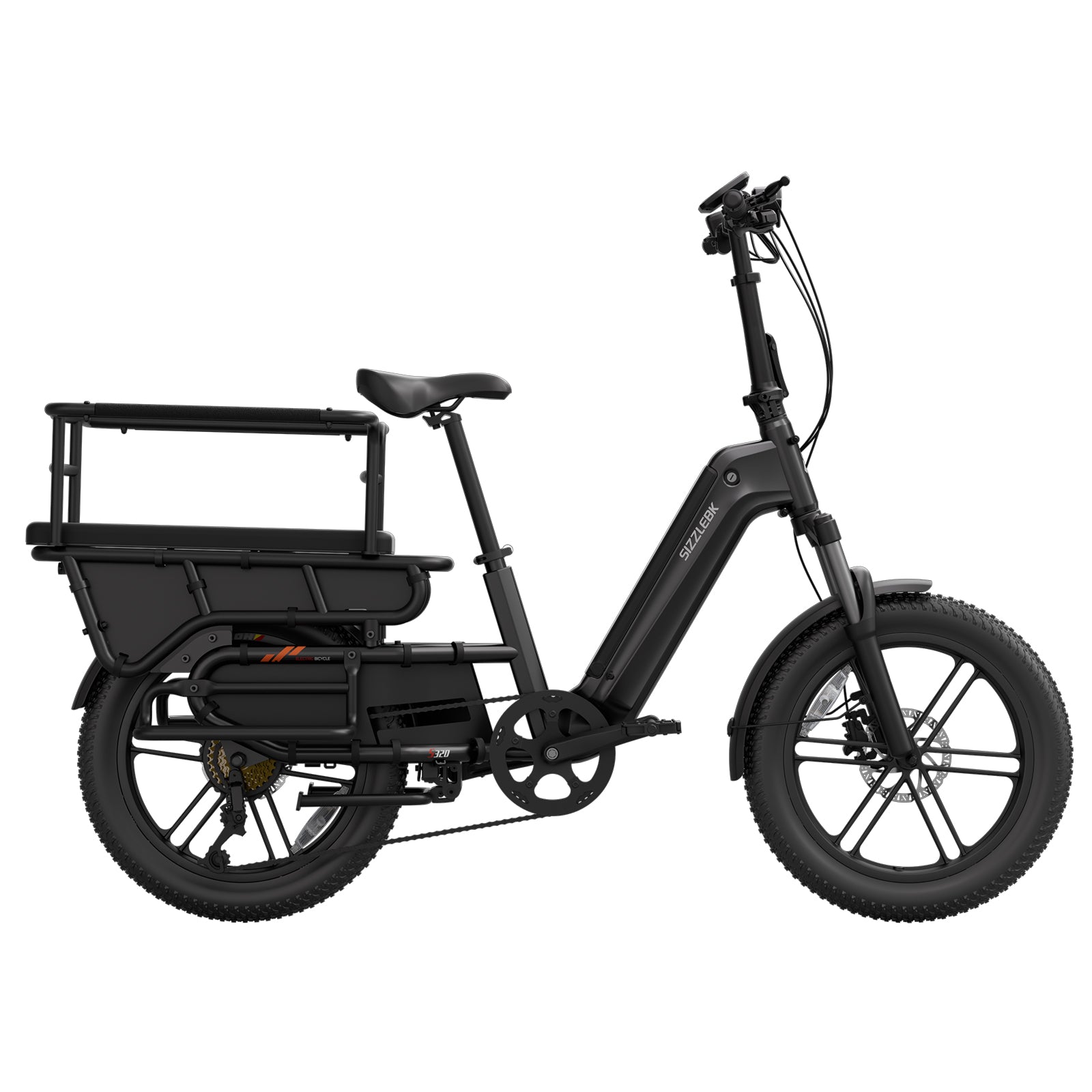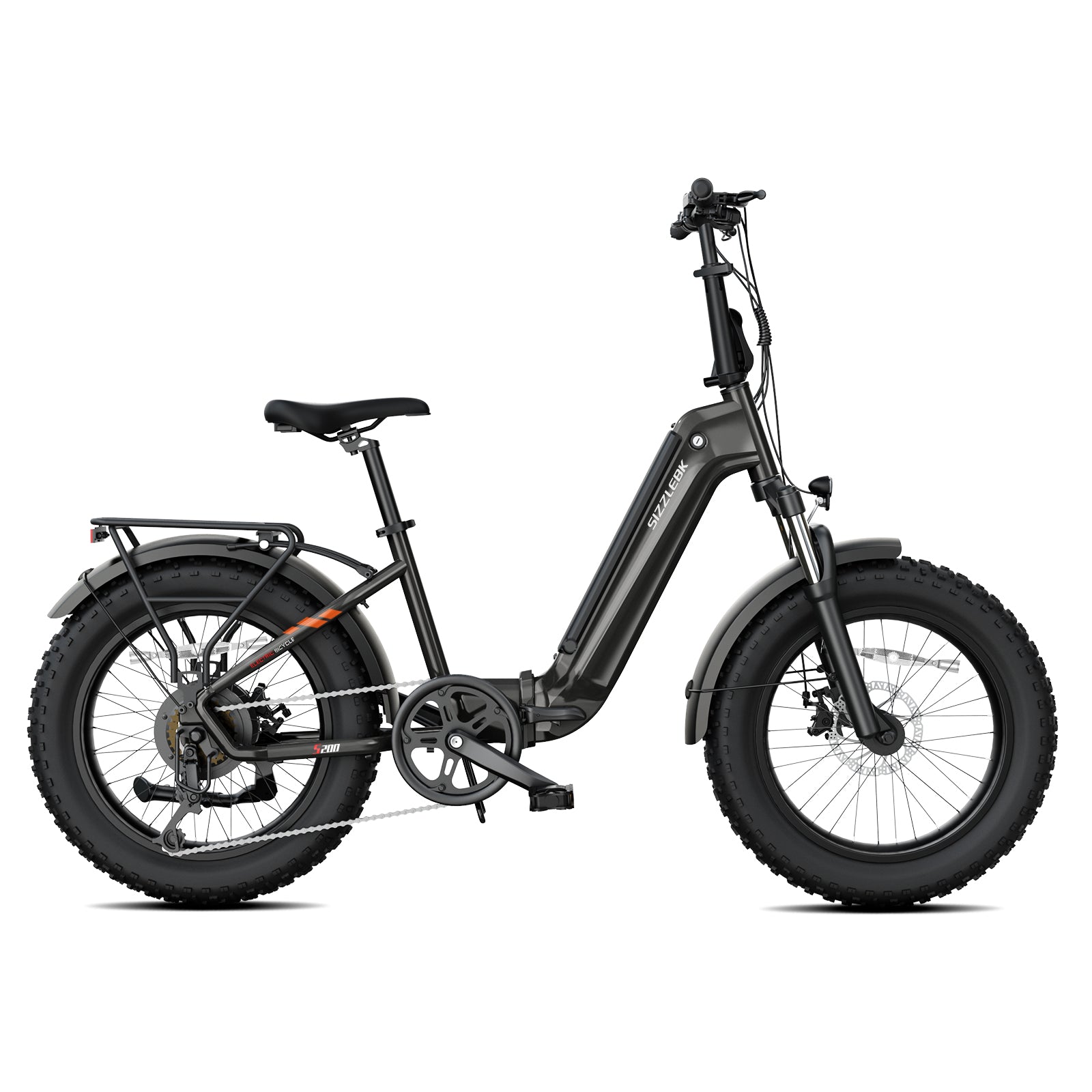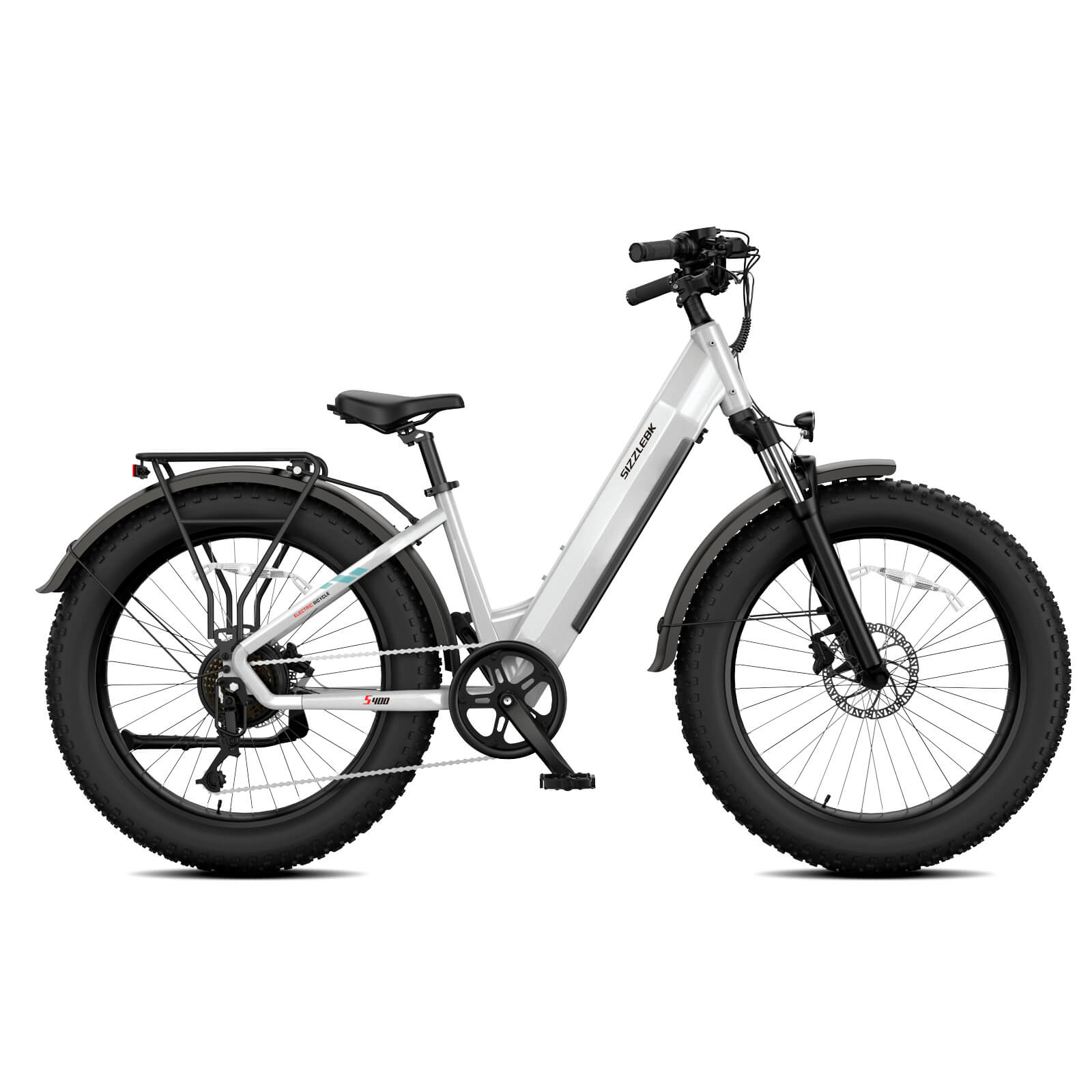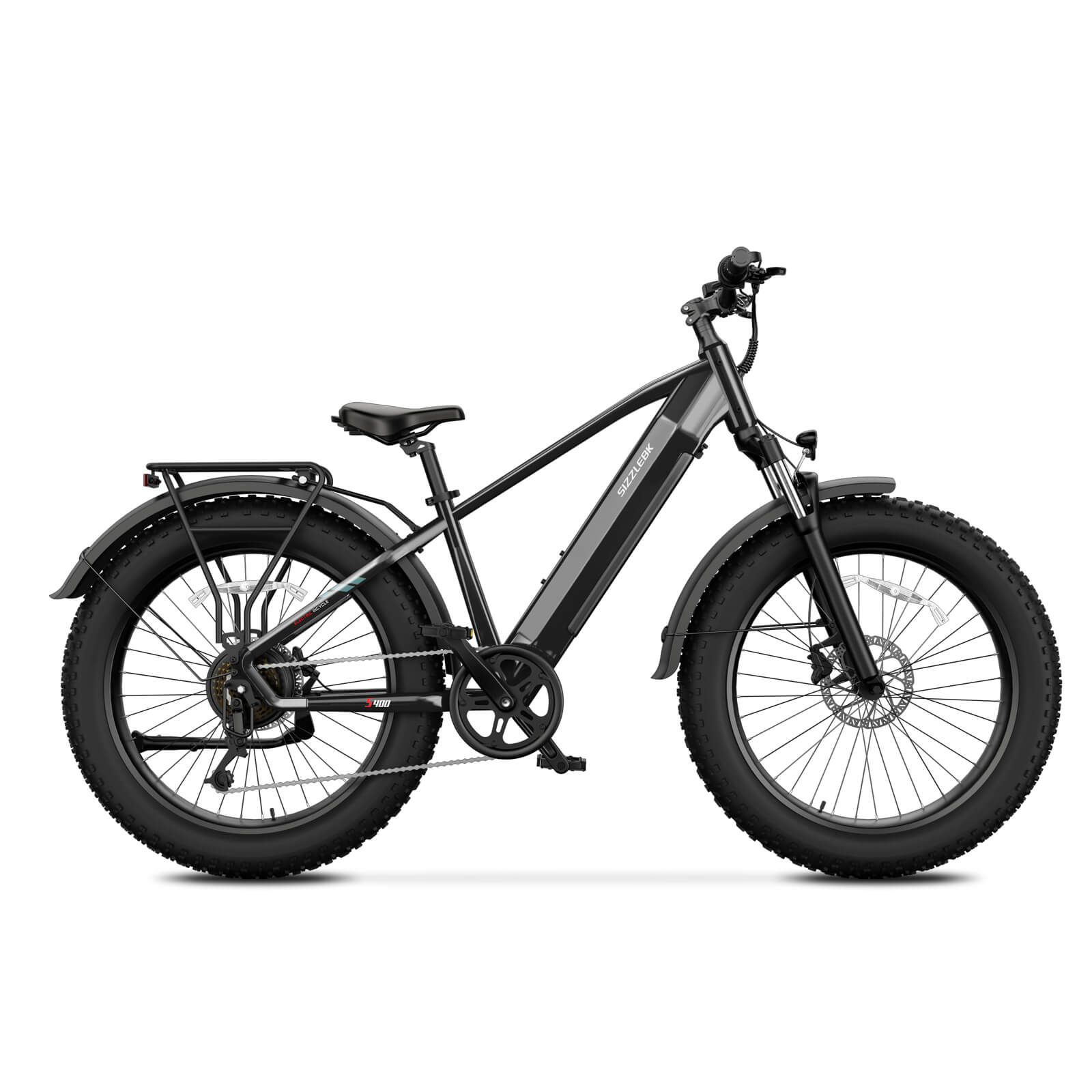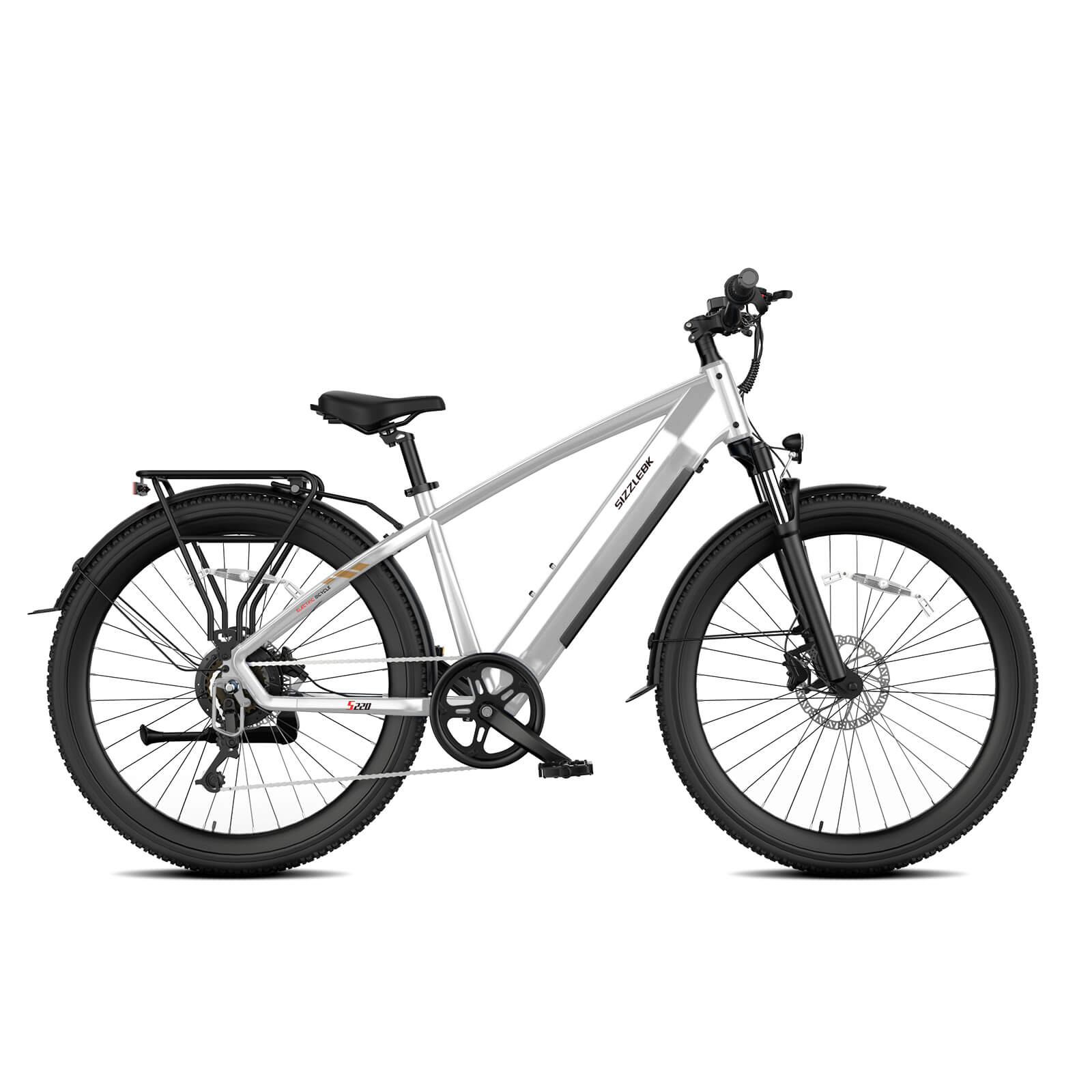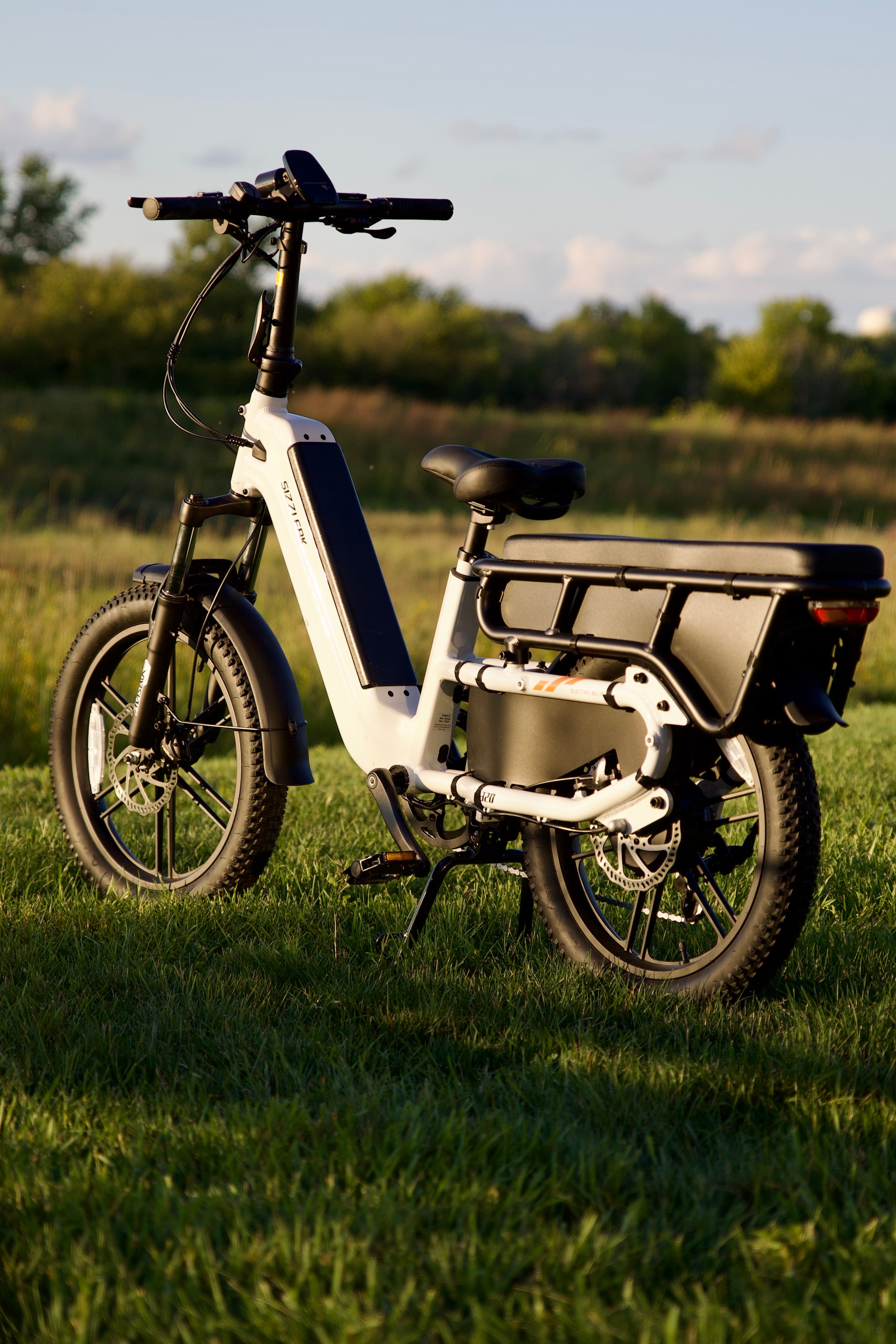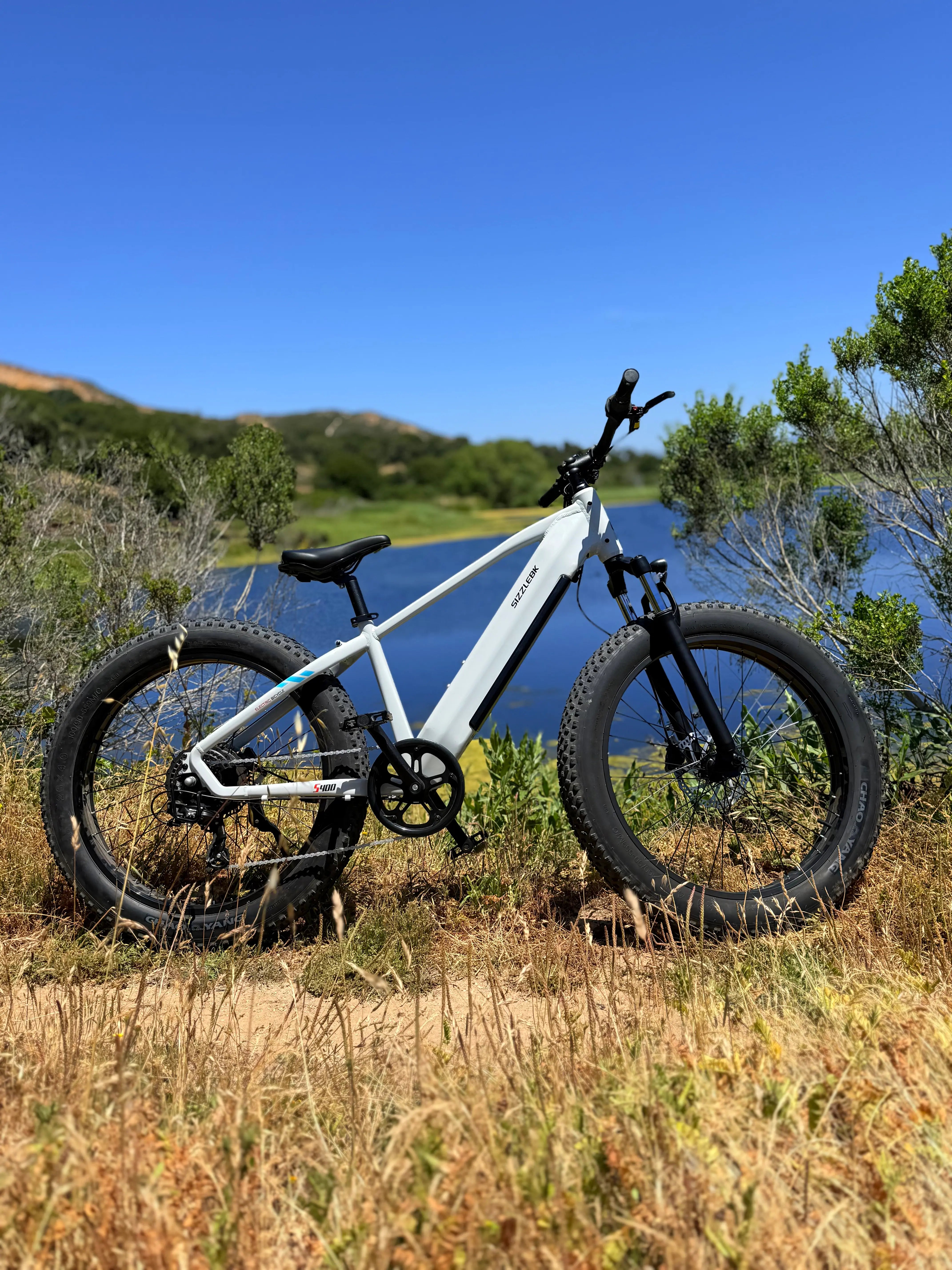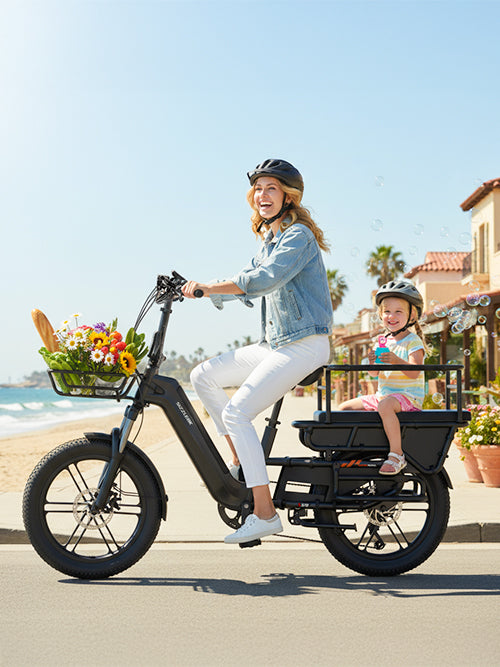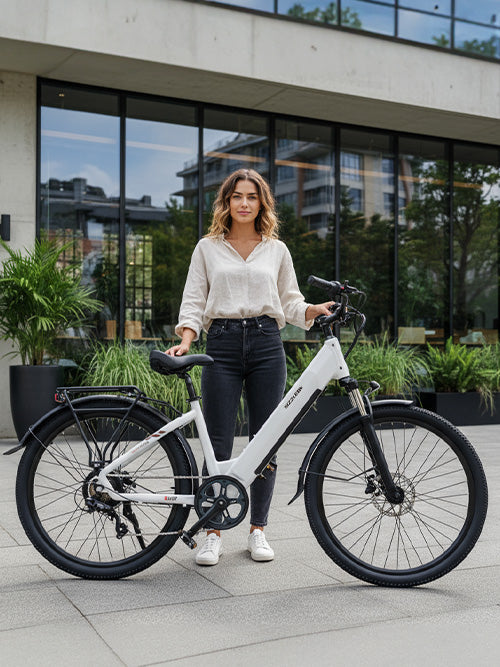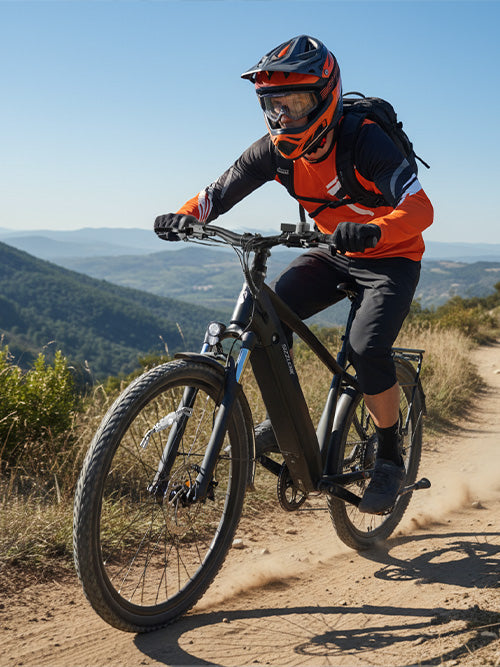As cities worldwide grapple with increasing traffic congestion, rising air pollution, and the urgent need for sustainable transportation solutions, electric cargo bikes (eCargo bikes) have emerged as a powerful alternative to traditional vehicles. These versatile, electric-powered bikes offer a practical, eco-friendly way to transport goods, groceries, and even passengers, especially in dense urban environments.
Unlike cars or delivery vans, eCargo bikes help reduce carbon emissions, lower operating costs, and navigate busy streets with ease. In this article, we’ll explore why electric cargo bikes are gaining traction, their impact on urban mobility, and what the future holds for these game-changing vehicles.
What Are Electric Cargo Bikes (eCargo Bikes)?
An electric cargo bike is a specially designed bicycle equipped with an electric motor that provides pedal assistance, making it easier to carry heavy loads or passengers over longer distances. Unlike regular bicycles, eCargo bikes feature reinforced frames and dedicated cargo areas, such as:
- Front-loading cargo boxes
- Rear cargo platforms
- Three-wheeled configurations for greater stability
The electric assist reduces the physical strain on riders, making eCargo bikes accessible to people of all fitness levels, regardless of load size or local terrain.
Key Benefits of Electric Cargo Bikes in Urban Areas
🌱 1. Eco-Friendly and Zero Emissions
eCargo bikes operate on rechargeable electric batteries, producing zero emissions during use. By replacing gas-powered vehicles with electric cargo bikes, cities can drastically cut carbon emissions, improve air quality, and reduce urban noise pollution. These improvements directly contribute to healthier, greener living environments.
💰 2. Significant Cost Savings
Compared to cars or delivery vans, electric cargo bikes are:
- Cheaper to purchase and maintain
- Exempt from fuel expenses
- Lower in insurance costs (or sometimes not required)
For businesses, this translates to lower delivery costs and higher profit margins, especially for last-mile delivery services.
🚲 3. Superior Urban Efficiency
In dense cities plagued by gridlock, electric cargo bikes shine by navigating bike lanes, alleys, and pedestrian streets inaccessible to cars. This leads to:
- Faster delivery times
- Improved route flexibility
- Reliable last-mile logistics
🏋️ 4. Health Benefits for Riders
While the electric motor assists with heavy loads, riding an eCargo bike still requires light pedaling, promoting physical activity. For individuals and delivery riders alike, this can mean better cardiovascular health and improved well-being.
🛠 5. Versatility for Personal and Business Use
Whether you’re:
- Grocery shopping
- Transporting kids to school
- Running a local delivery business
- Carrying pets or bulky furniture
Electric cargo bikes can handle it all, making them ideal for a wide range of urban transportation needs.
How eCargo Bikes Are Changing Cities
🏙 Reducing Urban Traffic Congestion
Replacing delivery vans with electric cargo bikes means fewer large vehicles clogging city streets. Bike-friendly urban areas can expect:
- Less congestion
- Shorter commute times
- Freed-up parking spaces
These spaces can be repurposed for bike lanes, pedestrian zones, or green spaces, contributing to more livable, vibrant urban communities.
🌍 Promoting Sustainable Urban Development
As more cities commit to net-zero targets, adopting eCargo bikes aligns with global efforts to reduce fossil fuel dependency. Local governments can accelerate this shift by:
- Expanding cycling infrastructure
- Offering subsidies or tax breaks for electric cargo bike purchases
- Supporting cargo bike sharing programs
🚚 Solving the Last-Mile Delivery Problem
One of the biggest logistical challenges for modern businesses is last-mile delivery—the final, often slow leg of transporting goods to consumers. Electric cargo bikes excel here, delivering:
- Faster arrival times in traffic-congested areas
- Direct-to-door service in narrow or restricted-access streets
- Lower delivery costs for businesses and customers alike
Challenges Facing Electric Cargo Bikes (and How to Overcome Them)
| Challenge | Solution |
|---|---|
| 🚗 Initial Cost | Offer government subsidies, tax credits, or leasing programs to reduce upfront costs. |
| 🛣 Limited Infrastructure | Invest in dedicated bike lanes, parking zones, and charging stations for eCargo bikes. |
| 💼 Public Awareness | Launch public campaigns showcasing the benefits of electric cargo bikes for deliveries. |
The Future of Electric Cargo Bikes in Cities
🏗 Integration into Urban Planning
For electric cargo bikes to thrive, they must be incorporated into urban transportation master plans. This means:
- Widening bike lanes to accommodate larger cargo models
- Implementing low-emission zones favoring eBikes
- Including cargo bike parking hubs at key commercial areas
🤝 Business and Government Collaboration
Private sector delivery giants like Amazon and UPS have already started trialing eCargo bike fleets in major cities. Partnerships between businesses and municipalities can:
- Create shared cargo bike hubs
- Coordinate delivery schedules to reduce peak-hour traffic
- Foster innovation in cargo bike design and logistics platforms
📲 Embracing Smart Technology
Future eCargo bikes will likely feature:
- GPS and real-time tracking
- App-controlled locking systems
- Battery management systems (BMS) for longer ranges
- Fleet management dashboards for businesses
As cities evolve into smart cities, electric cargo bikes will become a critical component of integrated, tech-driven transportation ecosystems.
Conclusion: Why Electric Cargo Bikes Are the Future of Urban Transport
The rise of electric cargo bikes marks a pivotal shift in how we think about urban mobility. With their ability to reduce emissions, cut costs, and enhance efficiency, eCargo bikes are already reshaping delivery networks and daily commuting in forward-thinking cities worldwide.
As governments and businesses continue to embrace this sustainable solution, electric cargo bikes will play a crucial role in transforming cities into cleaner, more accessible, and more resilient places to live.
FAQs About the Future of Electric Cargo Bikes in Cities
1. Why are electric cargo bikes important for urban transportation?
Because they reduce emissions, alleviate traffic congestion, and lower delivery costs, eCargo bikes are an essential part of sustainable urban development.
2. Can businesses really benefit from using eCargo bikes?
Yes! Electric cargo bikes for delivery offer lower operational costs, faster deliveries in congested areas, and appeal to eco-conscious customers.
3. How can cities encourage more people to use eCargo bikes?
By expanding cycling infrastructure, offering financial incentives, and providing dedicated parking or loading spaces for cargo bikes.
4. Are there electric cargo bikes suitable for families?
Absolutely. Many models come equipped with seats, harnesses, and weather protection to safely transport children and groceries together.
5. What technological advancements are shaping the future of eCargo bikes?
GPS navigation, anti-theft features, app integrations, and improved battery technology will make eCargo bikes even more efficient, secure, and appealing to both businesses and private users.
